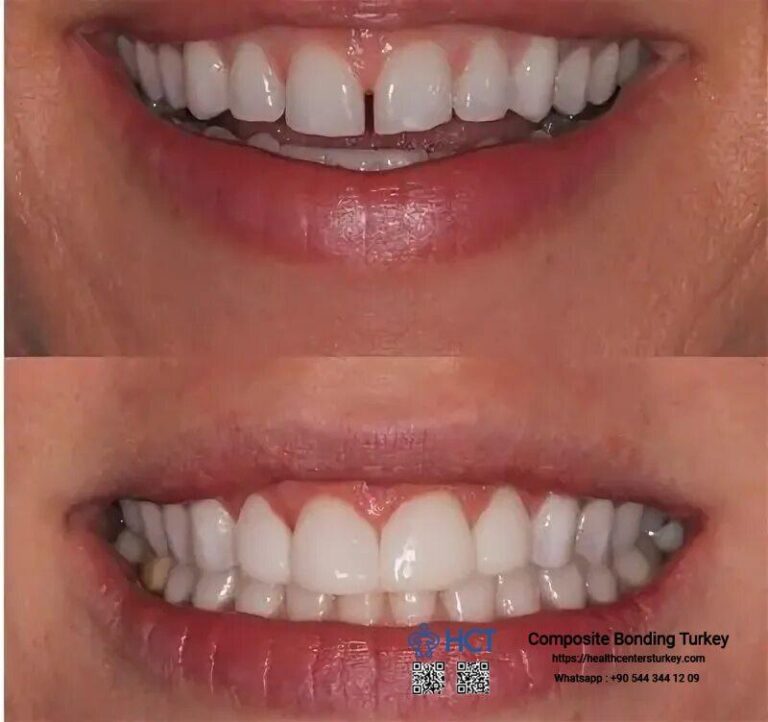Comprehensive Oral Health Solutions in Turkey for a Beautiful Smile
Dental implants have become a preferred solution for these seeking to replace missing teeth. Understanding how these implants can have an effect on adjacent teeth is crucial for anyone considering this process, as well as for dentists and specialists concerned in dental care.

One vital aspect is that dental implants are designed to be anchored into the jawbone, which implies they're independent of adjacent teeth. Unlike dental bridges, which often require the alteration of neighboring teeth, implants can fill the hole without compromising the health or structure of those surrounding teeth.
This independence helps preserve the integrity of adjacent teeth. When a tooth is lost, there can be a natural tendency for neighboring teeth to tilt or shift into the empty house. Such movement can result in misalignment, which may have an effect on chunk and general oral health. By inserting an implant, you successfully prevent this potential shift, promoting higher alignment in the long term.
Health Tourism: Experience Affordable Care in Turkey
Additionally, dental implants assist maintain bone density within the jaw. A natural tooth root provides stimulation to the encircling bone, maintaining it wholesome and powerful. When a tooth is missing, the bone can start to deteriorate because of lack of stimulation. With a dental implant mimicking a natural root, bone loss can be minimized, which not directly benefits adjacent teeth by preserving the general structure of the dental arch.
While dental implants are advantageous, improper placement can influence neighboring teeth. If an implant is positioned too shut to another tooth, it may exert undue pressure on that tooth, resulting in discomfort or potential damage. Proper planning and imaging strategies are essential for avoiding such points.
Plan Your Dental Journey in Turkey
Moreover, maintaining good oral hygiene is essential after receiving an implant. If not properly cleaned, surrounding teeth may turn out to be prone to dental points such as decay or gum disease. This underscores the significance of diligent oral care following the process to ensure both implants and adjacent teeth remain healthy.
Regular dental check-ups are additionally very important for monitoring the health of surrounding teeth. Dentists can establish any shifts or potential problems early, allowing for well timed interventions. This proactive approach ensures that both the implant and adjacent teeth can coexist with out complications.
Competitive Teeth Brightening Treatments for a Radiant Smile
Another consideration is the influence of implants on bite pressure. When a single tooth is missing, the load of chewing could shift to adjacent teeth, potentially resulting in put on or strain. Implants restore correct chunk dynamics by redistributing forces in the mouth, which may defend surrounding teeth from undue stress.
Some patients might elevate concerns concerning the appearance of dental implants. Well-placed implants can mix seamlessly with current teeth, improving general aesthetics. In distinction, failing to switch a missing tooth can lead to aesthetic issues, together with collapsing of facial structure and adjustments in smile dynamics.
It's also value discussing the psychological features of dental health. Experiencing tooth loss can adversely affect one’s vanity and willingness to have interaction socially. By restoring your smile with implants, you possibly can positively affect not solely your oral health but additionally your emotional well-being.
Long-term success of dental implants usually hinges on varied factors, together with the patient's health, maintenance habits, and the standard of the initial procedure. If adjacent teeth useful content are healthy and properly cared for, the likelihood is that they'll proceed to thrive alongside the implants.
Enhance A Smile using Advanced Dental Solutions
In conclusion, dental implants play a vital function in not simply restoring individual smiles, but in preserving the health and structure of adjacent teeth. By preventing shifting, maintaining bone density, and redistributing bite forces, implants can make positive that surrounding teeth stay in optimum condition. Proper placement, hygiene, and common dental visits can additional improve the advantages of dental implants, resulting in a more healthy, extra assured smile for years to come back.
- Dental implants may help preserve the alignment of adjacent teeth by offering a steady anchor, stopping adjacent teeth from shifting into the gap left by a missing tooth.
- The presence of an implant might stimulate bone progress in the jaw, helping to preserve the overall structure and integrity of the adjacent teeth.
- Unlike traditional bridges, implants don't require alteration of surrounding teeth, thus preserving their energy and anatomy.
- Implants can improve the distribution of chunk forces evenly throughout the dental arch, decreasing the stress on neighboring teeth throughout chewing.
- A well-integrated dental implant can decrease the danger of bone loss in the area surrounding adjacent teeth, contributing to their long-term health and stability.
- The aesthetics of adjacent teeth can be improved because of the support provided by implants, which can lead to higher general cosmetic outcomes.
- With proper placement, dental implants can prevent gum recession around adjacent teeth by sustaining sufficient dental structure.
- Implants might help mitigate the risks of periodontal disease in nearby teeth by promoting wholesome gum tissue and offering a washer-friendly surface.
- Long-term success of dental implants can result in improved oral hygiene routines, which in flip benefits the health of surrounding teeth.
- The improved functional ability of an implant can encourage sufferers to chew extra successfully, thus rising saliva manufacturing and aiding in the protection of adjacent dental tissues.undefinedHow do dental implants have an effect on adjacent teeth?
What are dental implants and how do they work together with adjacent teeth?undefinedDental implants are synthetic tooth roots which are surgically placed into the jawbone. They present a steady foundation for replacement teeth while guaranteeing minimal disruption to adjacent teeth, preserving their integrity and alignment. Embrace Your Smile Makeover in Turkey.
Enhancing Patient Experience in Turkish Dental Clinics
Can dental implants cause problems for close by natural teeth?undefinedGenerally, dental implants don't harm adjacent natural teeth. However, if the implant just isn't positioned appropriately or if there’s inadequate oral hygiene, it could lead to complications corresponding to browse around this site adjacent tooth decay or gum disease.

Will getting a dental implant change the means in which my adjacent teeth feel?undefinedMost sufferers report no change within the sensation of adjacent teeth after implant placement. However, it might take a while to adjust to the presence of the implant, just like how one might adapt to other dental restorations.
Can dental implants help preserve the health of adjacent teeth?undefinedYes, dental implants can help maintain the health of adjacent teeth by stopping bone loss that may happen after tooth loss. This preservation helps the alignment of nearby teeth, decreasing the risk of shifting or misalignment.
Aesthetic Dental Treatments Available in Beautiful Turkey
Do I want to switch adjacent teeth when getting an implant?undefinedTypically, adjacent teeth do not need alteration when placing an implant. This is doubtless certainly one of the advantages of dental implants over traditional bridges, which regularly require reshaping adjacent teeth for assist.
How does the therapeutic means of an implant have an effect on nearby teeth?undefinedThe therapeutic course of includes osseointegration, where the implant fuses with the jawbone. During this time, adjacent teeth stay unaffected and retain their operate, although it’s essential to follow post-operative care suggestions. Enhance Your Oral Health Care with Qualified Professionals in Turkey.
Cost-effective Dental Care Packages in Turkey including Implants and Cosmetic Dentistry
Can dental implants lead to bone loss around adjacent teeth?undefinedIf dental implants are positioned properly and cared for adequately, they should not result in bone loss around adjacent teeth. In fact, they may help stimulate bone progress, combating the natural bone loss that often follows tooth extraction.
What precautions ought to I take to protect adjacent teeth after getting an implant?undefinedRoutine dental hygiene, including brushing and flossing, together with regular dental check-ups, is essential. Avoiding exhausting foods and following your dentist’s aftercare directions will also defend each the implant and adjacent teeth.
Is it common for adjacent teeth to shift after an implant is placed?undefinedIt's not typical for adjacent teeth to shift after an implant placement, particularly when the implant is placed accurately and maintained properly. If there’s any motion, it might be due to different underlying issues that must be evaluated by a dental professional.